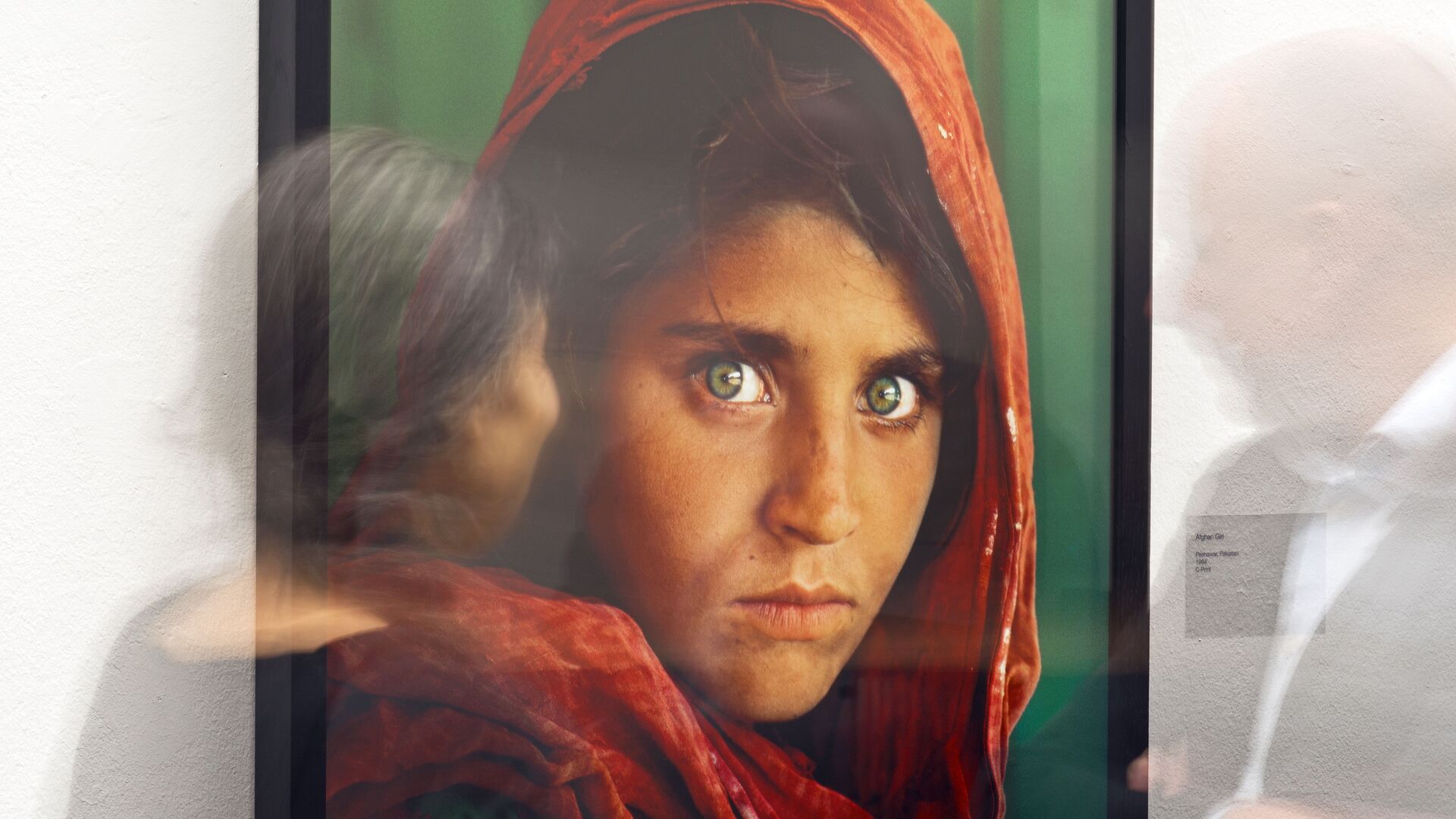https://sputnikglobe.com/20211016/french-politician-us-has-moral-and-legal-obligation-to-unblock-afghan-assets--let-the-nation-be-1089967357.html
French Politician: US Has Moral and Legal Obligation to Unblock Afghan Assets & Let the Nation Be
French Politician: US Has Moral and Legal Obligation to Unblock Afghan Assets & Let the Nation Be
Sputnik International
The EU's vow to provide a billion euros in humanitarian aid to Afghanistan, is “a bad joke”, according to French politician Karel Vereycken, who argues that... 16.10.2021, Sputnik International
2021-10-16T11:02+0000
2021-10-16T11:02+0000
2023-04-12T17:13+0000
pakistan
newsfeed
world
us
asia
opinion
russia
china
iran
afghanistan
https://cdn1.img.sputnikglobe.com/img/105661/90/1056619048_0:459:4428:2950_1920x0_80_0_0_eeac0b0b0fe49e8785b3aa730fbd487e.jpg
Brussels vowed to provide €1 billion ($1.15 billion) in humanitarian aid for Afghanistan during the latest G20 meeting. The EU leadership specified that the financial assistance would be channelled through international organisations working inside Afghanistan and not provided directly to the ruling Taliban*.However, earlier, the World Bank, the International Monetary Fund (IMF) and the European Union had suspended financial assistance to Afghanistan, citing “lack of clarity within the international community” over recognising the new government. For its part, the United States froze roughly $10 billion in Afghanistan's foreign reserves.US & EU Cynically Blocked Afghanistan's LifelineThe politician specifies that the US Federal Reserve withheld a whopping $9.5 billion of the Central Bank of Afghanistan's assets. Of that sum $7 billion is held by the New York Fed, about $1.3 billion is held in international accounts, while the rest is located in Switzerland's Bank for International Settlements, according to Ajmal Ahmady, the former acting governor of the bank.Vereycken draws attention to the fact that on 29 February 2020, the US government and the political wing of the Afghan insurgents inked an agreement which says that "the US and the Islamic Republic of Afghanistan are committed to continue positive relations, including economic cooperation for reconstruction". The US, if it wants to regain respect, has to live up to its legal commitments, argues the politician.For its part, the EU withheld a multi-year package of €1 billion ($1.15 billion) in EU development aid allocated for Afghanistan; the IMF suspended Kabul's access to its resources including nearly $440 million in new monetary reserves, while the World Bank withheld around $800 million committed by the institution for the Central Asian state this year, including salaries for Afghan women and health care workers."Paris, it's 5 o'clock... international mobilisation in Paris, Berlin, Washington, New York, Wiesbaden, etc to relay the Schiller Institute's petition to force the White House to unlock the frozen assets of the Afghan people. RV on site of the Schiller Institute."US Made Afghanistan Economically Non-ViableAfghanistan is one of the poorest countries in the world and heavily depends on international aid. According to the World Bank, Afghanistan's GDP per capita stood at $508.8 in 2020. The country's GDP amounted to just $19.8 billion, with over 42% coming from international aid.After the US, EU and Western financial institutions severed money flow to Afghanistan, a humanitarian crisis in the country has spun out of control. Food and commodity prices have considerably soared as the local currency is now in a free fall.Prior to the Taliban takeover the Food and Agriculture Organisation (FAO) of the United Nations warned that one in three people, or 14 million Afghans, are acutely food insecure, with four million on the brink of famine. Hundreds of health facilities stopped working after international aid money to Afghanistan was suspended. Health workers are overwhelmed and facing personnel shortages.The country is teetering on the brink of collapse, as after over two decades of occupation, the US failed to build a sustainable economy in Afghanistan despite spending $145 billion on this goal, admits The Wall Street Journal.The magazine notes that although Afghanistan's GDP "more than quadrupled from 2003 to $19.8 billion in 2020," this was largely a "spin-off effect of the US military presence". At the same, unemployment continued to rise over the years, reaching 23.9% in 2017 with the women's unemployment rate standing at 40%. Furthermore, 55% of the population lived below the poverty line in 2019, up from 34% in 2008, according to World Bank estimates.What's more, a number of American energy and agricultural projects in the country failed due to a lack of research. The US also turned a blind eye to the country's crumbling infrastructure and ageing roads, which largely contributed to further economic demise, according to Vereycken.The French politician argues that under these circumstances, the Western countries' decision to suspend aid to the war-torn country and block its central bank's funds amounts to nothing short of a "war crime by civilian means"."The US policy which is currently hindering food and medical assistance [to the people of Afghanistan] will cause millions of deaths," Vereycken warns. "The West’s frenetic blaming of the Taliban's non respect of women rights only aims to make us forget its own debacle, both militarily, economically and humanly."Neighbours to the RescueAfghanistan's neighbours are well aware that the protracted crisis in the Central Asian state is fraught with severe risks for the region, the French politician notes. According to him, the unfolding havoc could provoke a new refugee crisis and trigger new waves of terror.Thus, Beijing on 30 September sent the first batch of humanitarian assistance, worth $31 million, to Afghanistan. While China’s Ambassador to Afghanistan Wang Yu said that Beijing would be providing more assistance, Acting Minister of Refugee Affairs of the Afghan caretaker government Khalil-ur-Rehman Haqqani described China as a “good neighbour and friend of Afghanistan” and expressed the hope that China would continue to support the country.For its part, Pakistan provided food and live-saving drugs to its immediate neighbour in September. In the same month, the Islamic Republic of Iran sent three consignments of humanitarian aid to the Central Asian state. Meanwhile, Russia is preparing to host multilateral talks on Afghanistan in Moscow next week, signalling that post-conflict reconstruction and humanitarian assistance will be high on the summit's agenda.According to Vereycken, the immediate urgency is food and healthcare. Then, it's important to construct a platform of basic infrastructures including water, energy and transportation, he says, adding that China's Belt and Road Initiative could offer Kabul new opportunities in these fields. Iran, China and Pakistan could help Afghanistan increase trade exchange, while Turkmenistan will be able to provide energy to the country, the political analyst believes, referring to the Turkmenistan-Afghanistan-Pakistan-India (TAPI) Gas Pipeline project and the Turkmenistan-Afghanistan-Pakistan 500-kV Line (TAP-500) endeavour.Vereycken suggests that in the future Afghanistan's modernised national railroad system could be embedded into other Eurasian networks, including the proposed Five Nations Railroad Corridor, running through China, Kyrgyzstan, Tajikistan, Afghanistan, and Iran, onward to Turkey. On the other hand, the Chabahar rail corridor going from Afghanistan till the Iranian port of Chabahar would give the landlocked state access to the sea, according to him. On top of this, the Central Asian state's vast mineral wealth, including copper, iron, lithium and rare earths, could become the nation's source of prosperity and development rather than opium, the French politician concludes.*The Taliban is a terrorist organisation banned in Russia and many other states.
https://sputnikglobe.com/20210910/twenty-years-after-911-us--nato-allies-less-safe-and-closer-to-economic-abyss-analyst-says-1088945396.html
https://sputnikglobe.com/20210817/from-vietnam-to-afghanistan-us-leaves-deserts-behind-and-calls-it-peace-ex-un-expert-says-1083636590.html
https://sputnikglobe.com/20210825/how-us-media-and-cia-weaponised-womens-rights-to-manipulate-public-perception-of-afghan-war-1083703234.html
https://sputnikglobe.com/20210913/how-chinas-realpolitik-approach-to-venezuela-iran--afghanistan-upends-us-geopolitical-game-1089039446.html
https://sputnikglobe.com/20210819/lithium-gold--rare-earths-how-china-may-open-the-door-to-new-business-opportunities-for-afghans-1083657491.html
pakistan
russia
china
iran
afghanistan
Sputnik International
feedback@sputniknews.com
+74956456601
MIA „Rossiya Segodnya“
2021
News
en_EN
Sputnik International
feedback@sputniknews.com
+74956456601
MIA „Rossiya Segodnya“
Sputnik International
feedback@sputniknews.com
+74956456601
MIA „Rossiya Segodnya“
pakistan, newsfeed, us, opinion, russia, china, iran, afghanistan, taliban, humanitarian aid, lithium, hunger, schiller institute, mineral resources, afghanistan war, humanitarian disaster, european union (eu)
pakistan, newsfeed, us, opinion, russia, china, iran, afghanistan, taliban, humanitarian aid, lithium, hunger, schiller institute, mineral resources, afghanistan war, humanitarian disaster, european union (eu)
French Politician: US Has Moral and Legal Obligation to Unblock Afghan Assets & Let the Nation Be
11:02 GMT 16.10.2021 (Updated: 17:13 GMT 12.04.2023) The EU's vow to provide a billion euros in humanitarian aid to Afghanistan, is “a bad joke”, according to French politician Karel Vereycken, who argues that Western powers should urgently resume aid transfers to the Central Asian state and unblock the county's assets to prevent it from collapsing.
Brussels vowed to provide €1 billion ($1.15 billion) in humanitarian aid for Afghanistan during the latest G20 meeting. The EU leadership specified that the financial assistance would be channelled through international organisations working inside Afghanistan and not provided directly to the ruling Taliban*.
However, earlier, the World Bank, the International Monetary Fund (IMF) and the European Union had suspended financial assistance to Afghanistan, citing “lack of clarity within the international community” over recognising the new government. For its part, the United States froze roughly $10 billion in Afghanistan's foreign reserves.
US & EU Cynically Blocked Afghanistan's Lifeline
"It is outrageous that the US, EU and international institutions froze their aid to Afghanistan at a time when the Central Asian state is struggling with a deadly food and health crisis," says Karel Vereycken, vice president of Solidarite & Progres and a member of the “Afghanistan Task Force” of the International Schiller Institute.
The politician specifies that the US Federal Reserve withheld a whopping $9.5 billion of the Central Bank of Afghanistan's assets. Of that sum $7 billion is held by the New York Fed, about $1.3 billion is held in international accounts, while the rest is located in Switzerland's Bank for International Settlements, according to Ajmal Ahmady, the former acting governor of the bank.
Vereycken draws attention to the fact that on 29 February 2020, the US government and the political wing of the Afghan insurgents inked an agreement which says that "the US and the Islamic Republic of Afghanistan are committed to continue positive relations, including economic cooperation for reconstruction". The US, if it wants to regain respect, has to live up to its legal commitments, argues the politician.
For its part, the EU withheld a multi-year package of €1 billion ($1.15 billion) in EU development aid allocated for Afghanistan; the IMF suspended Kabul's access to its resources including nearly $440 million in new monetary reserves, while the World Bank withheld around $800 million committed by the institution for the Central Asian state this year, including salaries for Afghan women and health care workers.
"Paris, it's 5 o'clock... international mobilisation in Paris, Berlin, Washington, New York, Wiesbaden, etc to relay the Schiller Institute's petition to force the White House to unlock the frozen assets of the Afghan people. RV on site of the Schiller Institute."
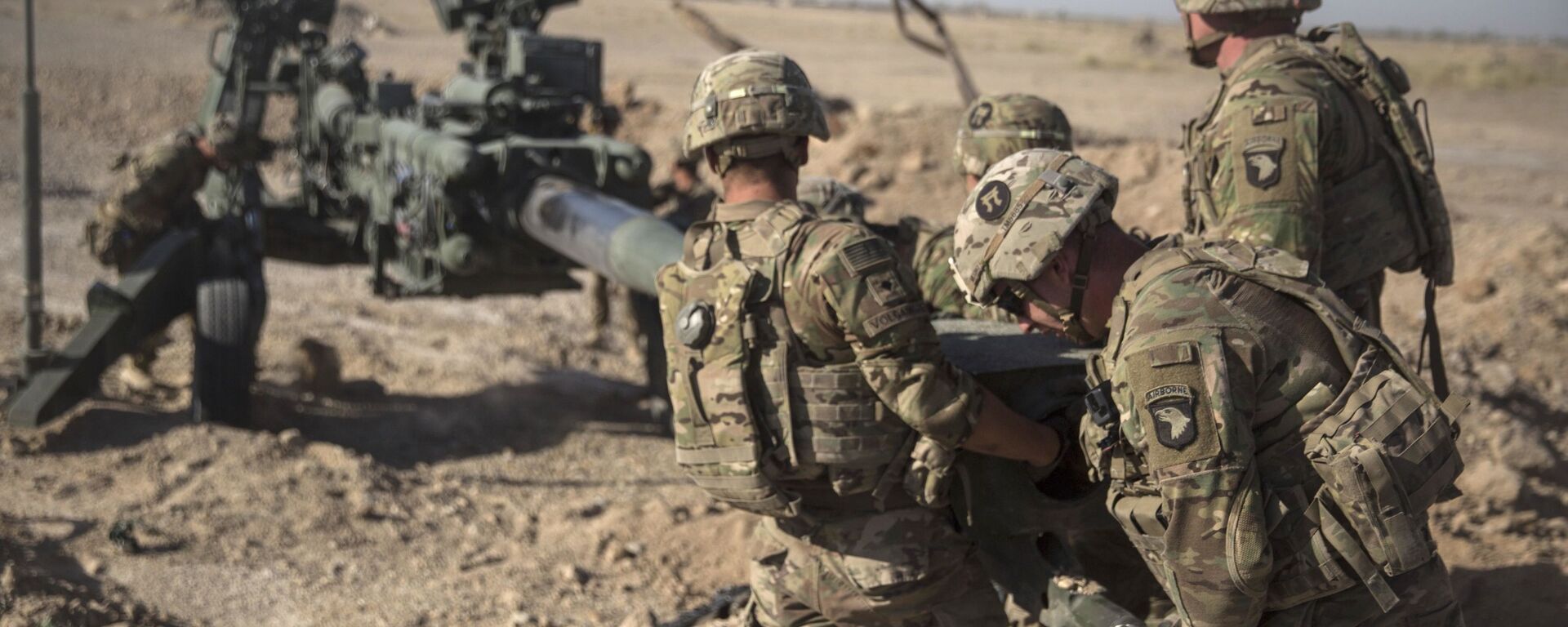
10 September 2021, 15:00 GMT
US Made Afghanistan Economically Non-Viable
Afghanistan is one of the poorest countries in the world and heavily depends on international aid.
According to the World Bank, Afghanistan's GDP per capita stood at $508.8 in 2020. The country's GDP amounted to just $19.8 billion, with over 42% coming from international aid.
After the US, EU and Western financial institutions severed money flow to Afghanistan, a humanitarian crisis in the country has spun out of control. Food and commodity prices have considerably soared as the local currency is now in a free fall.
Prior to the Taliban takeover the Food and Agriculture Organisation (FAO) of the United Nations
warned that one in three people, or 14 million Afghans, are acutely food insecure, with four million on the brink of famine. Hundreds of health facilities stopped working after international aid money to Afghanistan was suspended. Health workers are overwhelmed and facing personnel shortages.
The country is teetering on the brink of collapse, as after over two decades of occupation,
the US failed to build a sustainable economy in Afghanistan despite spending $145 billion on this goal,
admits The Wall Street Journal.
"Afghanistan’s economy did grow, and millions of Afghans gained access to education, healthcare and jobs," WSJ writes. "But the economy that the US helped build relies overwhelmingly on foreign aid, most of which evaporated overnight."
The magazine notes that although Afghanistan's GDP "more than quadrupled from 2003 to $19.8 billion in 2020," this was largely a "spin-off effect of the US military presence". At the same, unemployment continued to rise over the years, reaching 23.9% in 2017 with the women's unemployment rate standing at 40%. Furthermore, 55% of the population lived below the poverty line in 2019, up from 34% in 2008, according to World Bank estimates.
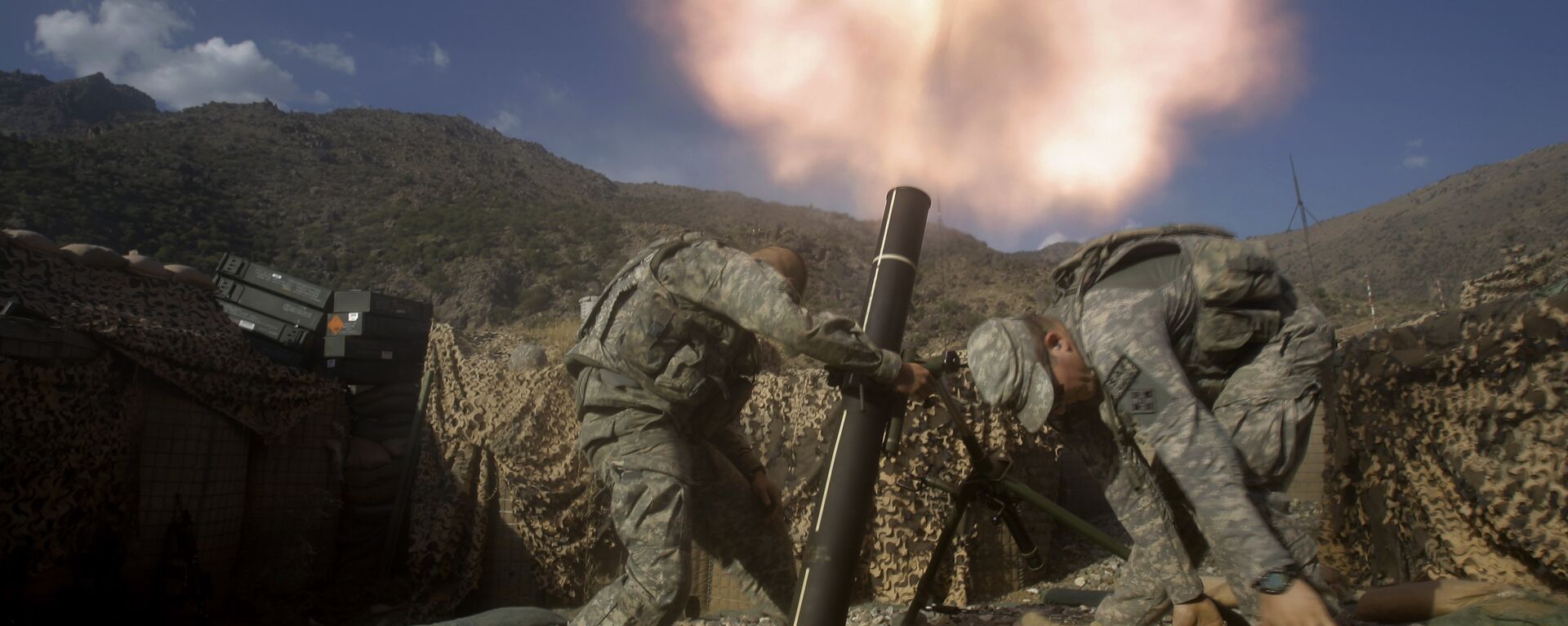
17 August 2021, 12:07 GMT
What's more, a number of American energy and agricultural projects in the country failed due to a lack of research. The US also turned a blind eye to the country's crumbling infrastructure and ageing roads, which largely contributed to further economic demise, according to Vereycken.
"Afghanistan had only 31 miles (50 km) of paved roads in 2002, which meant most of the communities were isolated," he recalls. "The US decided to change that by reviving the Ring Road – linking Kabul, Kandahar, Herat, and Mazar-I-Sharif – that was partially built by the Soviet Union in the 1960’s, but had been destroyed by decades of war. In 2012, the USAID cut funding for the road construction and the Ring Road was abandoned. According to a 2016 inspection,'20% of the roads were destroyed and the remaining 80% continue to deteriorate'."
The French politician argues that under these circumstances, the Western countries' decision to suspend aid to the war-torn country and block its central bank's funds amounts to nothing short of a "war crime by civilian means".
"The US policy which is currently hindering food and medical assistance [to the people of Afghanistan] will cause millions of deaths," Vereycken warns. "The West’s frenetic blaming of the Taliban's non respect of women rights only aims to make us forget its own debacle, both militarily, economically and humanly."
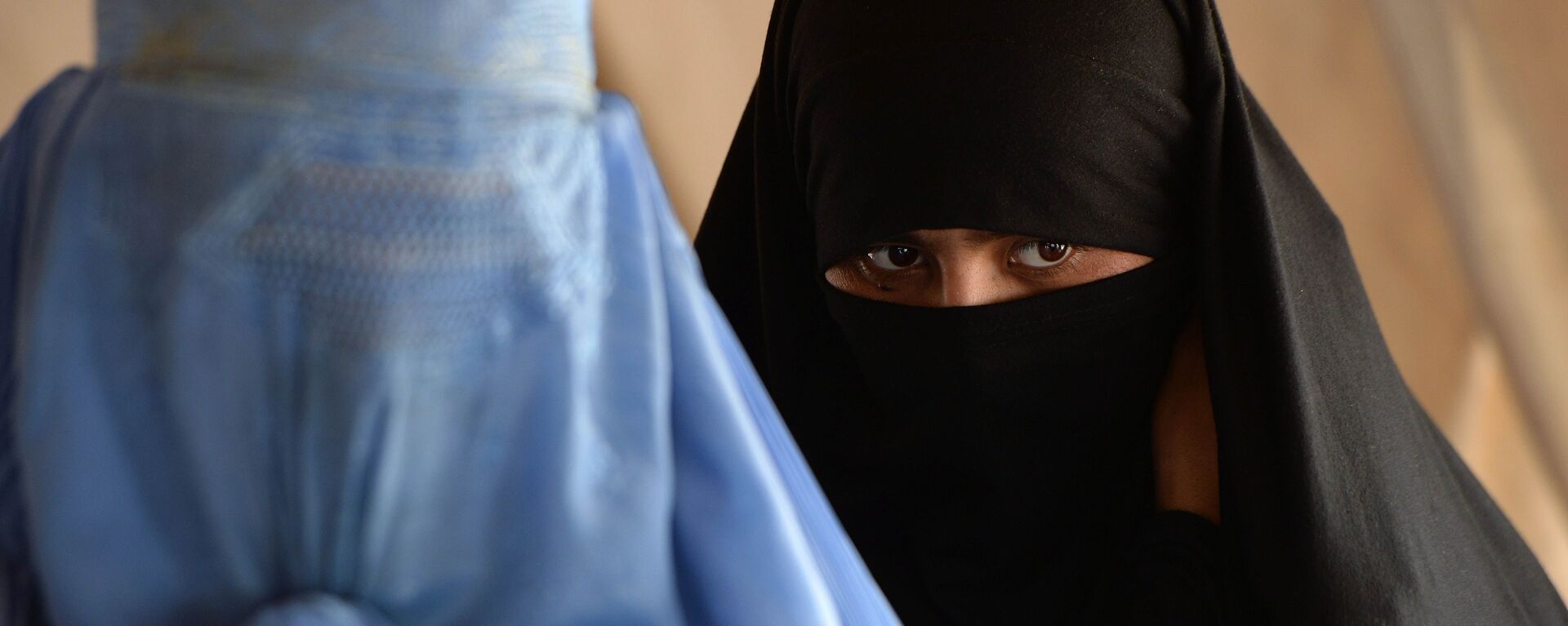
25 August 2021, 04:15 GMT
Afghanistan's neighbours are well aware that the protracted crisis in the Central Asian state is fraught with severe risks for the region, the French politician notes. According to him, the unfolding havoc could provoke a new refugee crisis and trigger new waves of terror.
Thus, Beijing on 30 September sent the first batch of humanitarian assistance, worth $31 million, to Afghanistan. While China’s Ambassador to Afghanistan Wang Yu said that Beijing would be providing more assistance, Acting Minister of Refugee Affairs of the Afghan caretaker government Khalil-ur-Rehman Haqqani described China as a “good neighbour and friend of Afghanistan” and expressed the hope that China would continue to support the country.
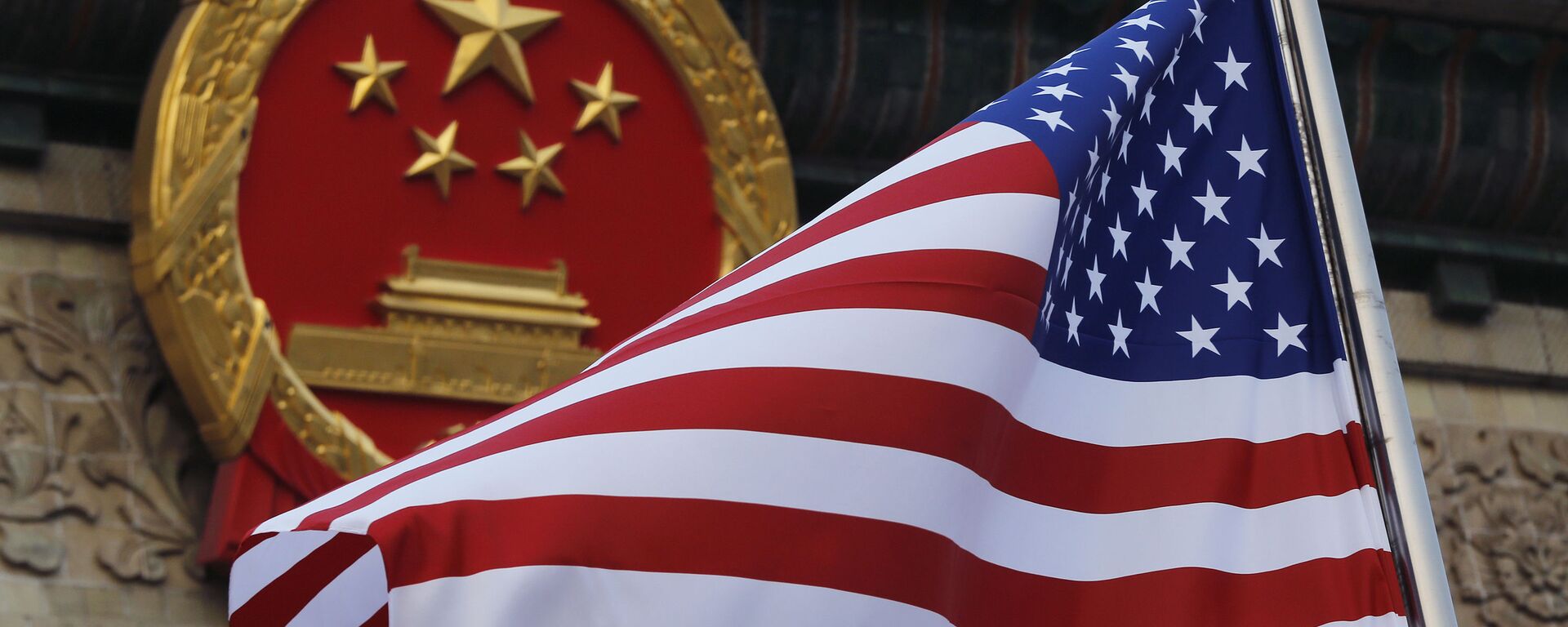
13 September 2021, 16:30 GMT
"There is a clear difference between Washington and Beijing as far as sanctions against the Taliban and Afghan Central Bank reserves are concerned," says Vereycken. "Addressing the G20 Foreign Ministers on 23 September, Chinese Foreign Minister Wang Yi said that all sanctions against Afghanistan should be removed and that the foreign reserves of Afghan Central Bank should be released by the US and 'not utilised as a means of exerting political pressure'."
For its part, Pakistan provided food and live-saving drugs to its immediate neighbour in September. In the same month, the Islamic Republic of Iran sent three consignments of humanitarian aid to the Central Asian state. Meanwhile, Russia is preparing to host multilateral talks on Afghanistan in Moscow next week, signalling that post-conflict reconstruction and humanitarian assistance will be high on the summit's agenda.
According to Vereycken, the immediate urgency is food and healthcare. Then, it's important to construct a platform of basic infrastructures including water, energy and transportation, he says, adding that China's Belt and Road Initiative could offer Kabul new opportunities in these fields. Iran, China and Pakistan could help Afghanistan increase trade exchange, while Turkmenistan will be able to provide energy to the country, the political analyst believes, referring to the Turkmenistan-Afghanistan-Pakistan-India (TAPI) Gas Pipeline project and the Turkmenistan-Afghanistan-Pakistan 500-kV Line (TAP-500) endeavour.
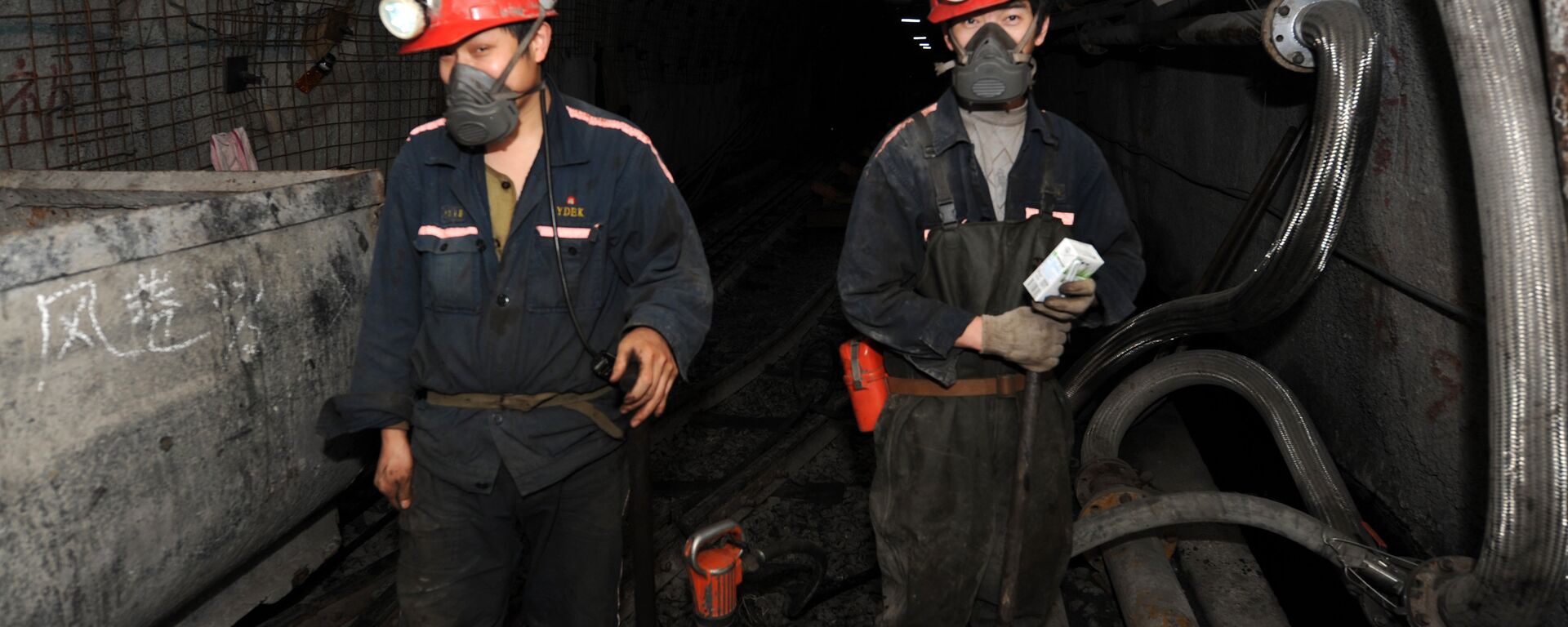
19 August 2021, 08:38 GMT
Vereycken suggests that in the future Afghanistan's modernised national railroad system could be embedded into other Eurasian networks, including the proposed Five Nations Railroad Corridor, running through China, Kyrgyzstan, Tajikistan, Afghanistan, and Iran, onward to Turkey. On the other hand, the Chabahar rail corridor going from Afghanistan till the Iranian port of Chabahar would give the landlocked state access to the sea, according to him.
On top of this, the Central Asian state's vast mineral wealth, including copper, iron, lithium and rare earths, could become the nation's
source of prosperity and development rather than opium, the French politician concludes.
*The Taliban is a terrorist organisation banned in Russia and many other states.
